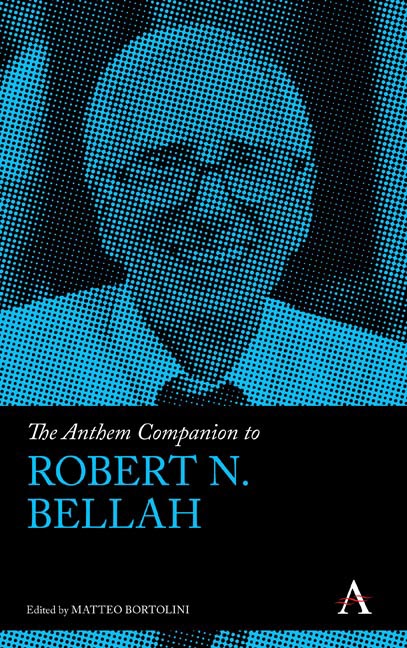Book contents
- Frontmatter
- Contents
- Notes on Contributors
- Introduction: On Being a Scholar and an Intellectual
- Part 1 Major Themes
- Chapter 1 Dialogues between Area Studies and Social Thought: Robert Bellah's Engagement with Japan
- Chapter 2 Civil Religion and Public Theology
- Chapter 3 Out of the Deep Past: The Axial Age and Robert Bellah's Project of Social Criticism
- Part 2 Yesterday and Today
- Part 3 Unexpected Masters
- Index
Chapter 3 - Out of the Deep Past: The Axial Age and Robert Bellah's Project of Social Criticism
from Part 1 - Major Themes
Published online by Cambridge University Press: 06 July 2019
- Frontmatter
- Contents
- Notes on Contributors
- Introduction: On Being a Scholar and an Intellectual
- Part 1 Major Themes
- Chapter 1 Dialogues between Area Studies and Social Thought: Robert Bellah's Engagement with Japan
- Chapter 2 Civil Religion and Public Theology
- Chapter 3 Out of the Deep Past: The Axial Age and Robert Bellah's Project of Social Criticism
- Part 2 Yesterday and Today
- Part 3 Unexpected Masters
- Index
Summary
Engagement with the Axial Age bookends Robert Bellah's long and scholarly career. Between the publication of “Religious Evolution” in the American Sociological Review in 1964 and the publication of his magnum opus, Religion in Human Evolution, almost 50 years later, he made it his project to understand the cultural forms that grew out of the long process of religious evolution. Bellah agreed with Karl Jaspers, the philosopher who had coined the concept of the Axial Age, and subsequent commentators like Benjamin I. Schwartz, Arnaldo Momigliano and Shmuel Eisenstadt, that the middle centuries of the first millennium BCE were of truly pivotal importance to human history. What set this period apart in the long and complex story of religious evolution was the emergence of what Schwartz had called “transcendence,” Eisenstadt called “transcendental visions” and Bellah in his later work took to calling “theory.” This development, which unfolded through varying pathways and became evident in varying degrees in different civilizations, marks the transition from the archaic to the axial stage. The criterion for this transition is that all presuppositions can be questioned and that alternate social realities can be imagined (Bellah 2011a, 322). Beyond the axial stage, however, Bellah was convinced that the axial breakthrough remained important in modern times as well. Ultimately, Bellah's concern was less with ancient history, and more with the present “crisis of coherence” (Bellah 2011a, xix). While he was unable before his death to complete his planned shorter work on the period from the Axial Age up to modern times, we have some hints in his writings of what Bellah would have seen as the crucial heritage of the Axial Age for our times.
In this chapter, we give an account of Bellah's engagement with the axial breakthrough in three different areas. First, we sketch how Bellah's account of parallel developments in ancient Israel, Greece, China and India exemplifies his evolutionary approach to religious and cultural development. While he rejected the end of the “grand narratives” that had been proclaimed by J.- F. Lyotard ([1979] 1984), he did not simply counter with a single closed and universalizing story. Like the sociologist and medievalist Benjamin Nelson, Bellah was wary of the scholarly tendency toward “uniformitarianism” (Nelson 1974, 140), that is, the post hoc rendering of disparate developments as a systematic whole.
- Type
- Chapter
- Information
- The Anthem Companion to Robert N. Bellah , pp. 81 - 96Publisher: Anthem PressPrint publication year: 2019



